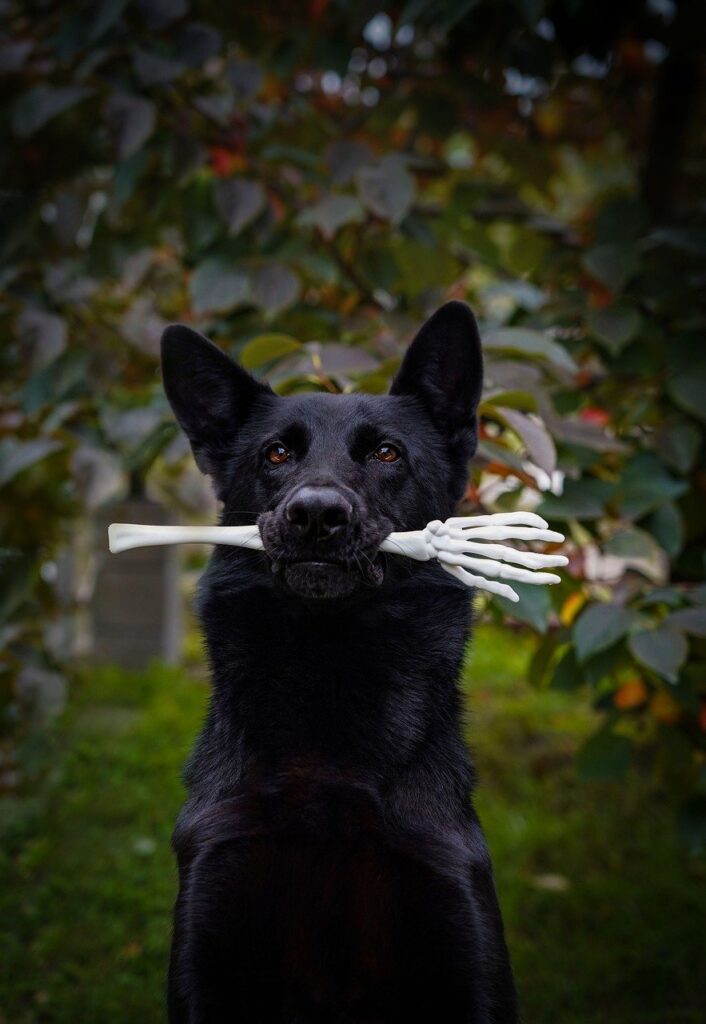Can Dogs Eat Corn? – Yes, They Can
Good news for our four-legged pals! Yes, dogs can eat corn. Corn is a common ingredient found in many dog foods, and in its pure form, it offers a source of carbohydrates, protein, and antioxidants. However, it’s important to serve it to your dog safely to ensure their health remains in top shape. Always make sure the corn is plain and cooked, and never feed them corn cobs, as these can lead to intestinal blockage.
Can Puppies Eat Corn?
Yes, even the little ones can enjoy corn, but with a bit more caution. Since puppies have sensitive digestive systems, introduce corn into their diet gradually to ensure they tolerate it well. It’s best to consult with your vet before including corn into your puppy’s diet to get personalized advice.
Things to consider when feeding corn to puppies?
When it comes to puppies, consider their size and chewing abilities. Provide them with small portions of fully cooked corn kernels to prevent choking. Additionally, look out for any signs of allergies or adverse reactions as their systems are still developing.
Nutritional Benefits of Corn for Dogs – Why Dogs Can Have Corn
Fiber
Corn contains dietary fiber which aids in digestion and helps maintain bowel health. It’s crucial for keeping your dog regular and can assist in weight management.
Protein
Protein is vital for your dog’s muscle growth and repair. Corn provides a modest amount of protein, beneficial as part of a balanced diet.
Antioxidants
Antioxidants, like those found in corn, are important for battling free radicals. This means potentially reduced inflammation for your canine friend.
Vitamin C
Though dogs produce vitamin C naturally, the extra amount from corn can support the immune system and act as an additional health booster.
Lutein
Corn contains lutein, an antioxidant that promotes healthy vision, which is particularly beneficial for aging dogs.
Potential Allergies: Can Dogs Be Allergic to Corn?
Some dogs can be allergic to corn. If you notice any unusual symptoms when your dog eats corn, consider it might be an allergy issue.
Symptoms of Corn Allergies in Dogs
- Itchy Skin: Monitor your pet for excessive scratching or licking.
- Gastrointestinal Upset: Look for symptoms like vomiting or diarrhea.
- Ear Infections: Frequent ear infections can also be a sign of food allergies.
What to Do If Your Dog Shows Symptoms?
- Visit the Vet: They can diagnose and propose treatment for allergies.
- Food Elimination Diet: Your vet might suggest a special diet to pinpoint the allergy.
- Medication: In some cases, vets prescribe antihistamines or corticosteroids.
Recommended Amount: How Much Corn Can a Dog Consume?
Moderation is key, just like any treat. Depending on your dog’s size, a few tablespoons of corn are enough to reap the benefits without overdoing it.
Things to Consider When Feeding Corn to Dogs
Remember to remove the kernels from the cob, avoid butter and salt, and serve it cooked. Also, note that some processed forms of corn, like corn chips, are unhealthy for dogs.
How to Feed Corn to Dogs: A Quick Guide
Corn can be a delightful treat for dogs when prepared properly. Skip the seasoning, and ensure it’s cooked to avoid any potential hazards.
Simple Boiled Corn Kernel Treat
Boil some fresh corn until soft, then slice off the kernels and let them cool. These make a perfect treat during training.
Corn and Chicken Mix
Cooked, deboned chicken shredded and mixed with corn kernels offers a protein-packed snack. Ensure all bones are removed to prevent choking.
Frozen Corn Pops
Blend cooked corn into a puree, pour into an ice tray, and freeze. These frozen treats can help cool your dog down on a hot day.
Conclusion
There you have it, dog lovers! Corn is a ‘yes’ for dogs when served appropriately. It’s a tasty snack that provides various health benefits, but remember to treat your dog in moderation and always consider their individual dietary needs and restrictions.



